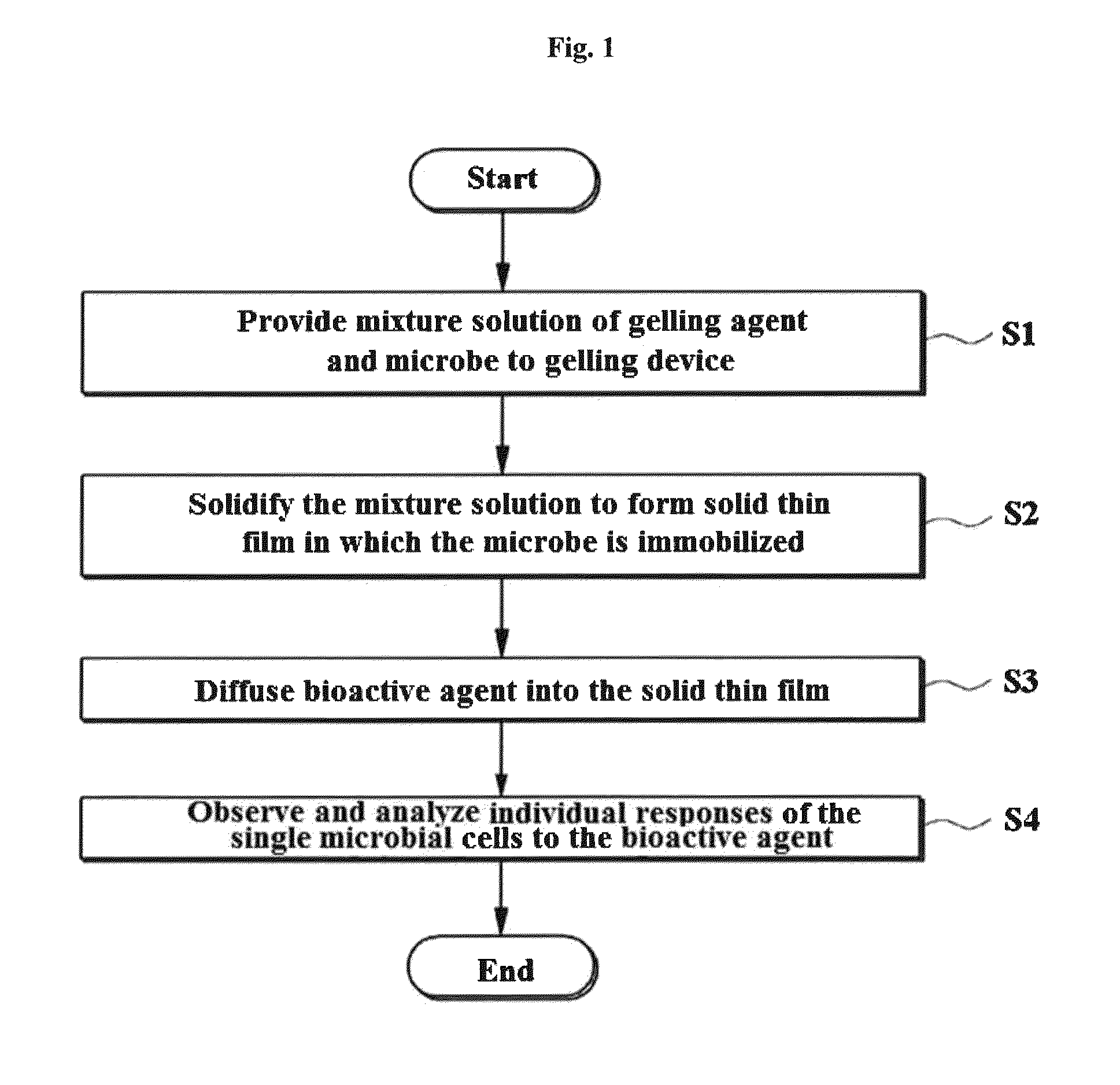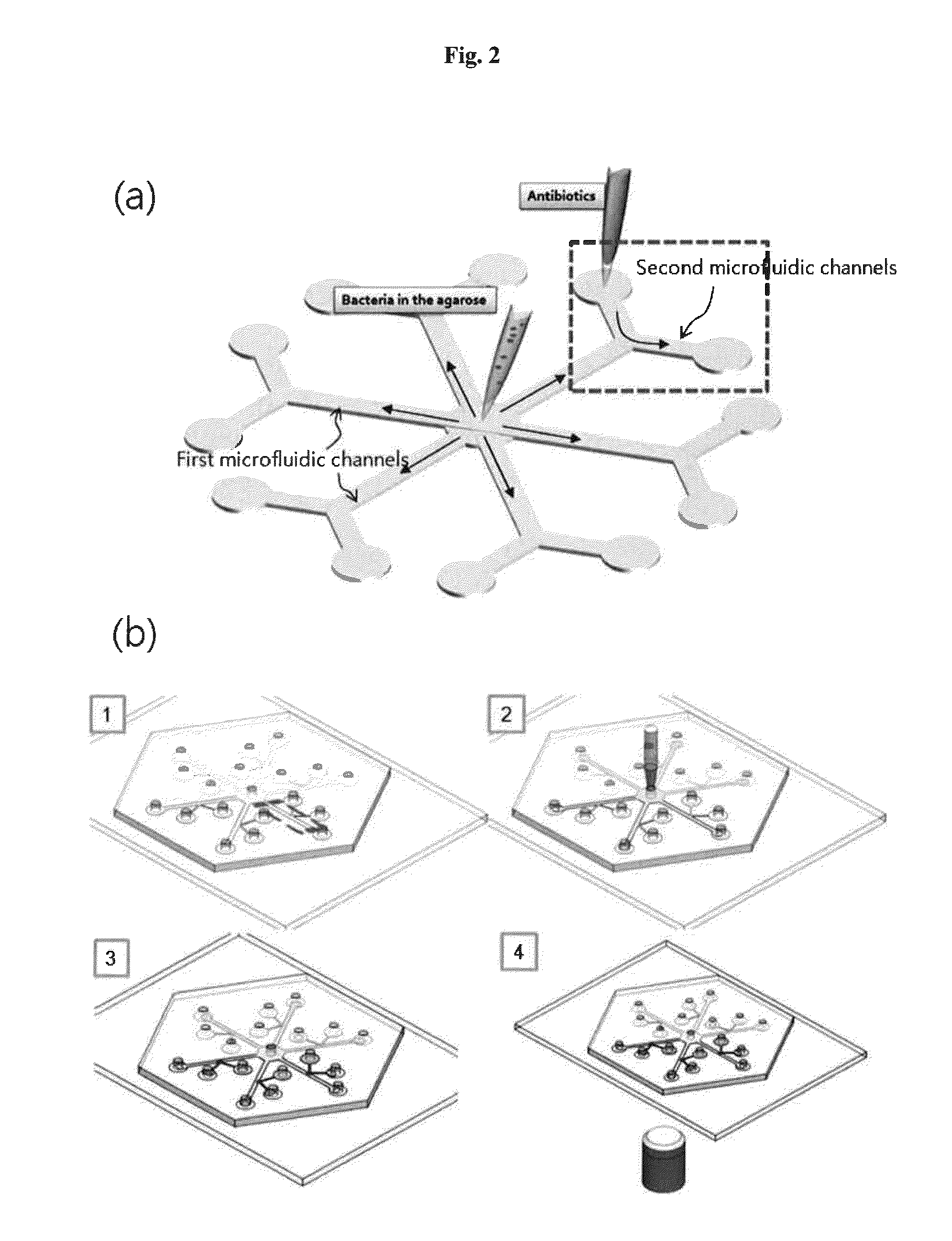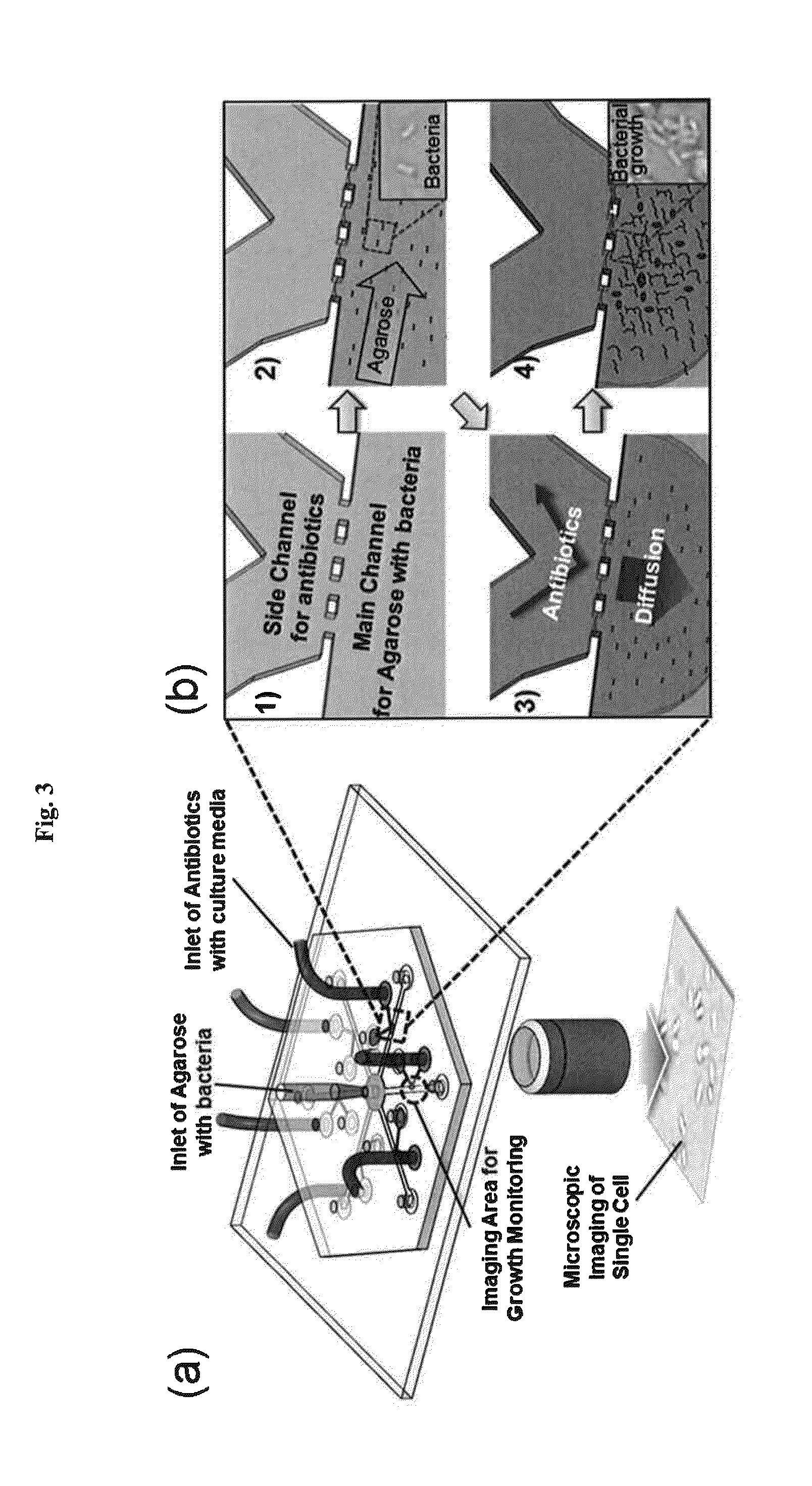Rapid antibiotic susceptibility testing system based on bacterial immobilization using gelling agent, antibiotic diffusion and tracking of single bacterial cells
a technology of rast and bacterial immobilization, applied in the field of rast system based on bacterial immobilization, can solve the problems of large time and labor required to test a large number of drugs, inability to monitor changes occurring in single cells against drugs and monitor motile single cells in real time, and requires a relatively long time of about 12 hours
- Summary
- Abstract
- Description
- Claims
- Application Information
AI Technical Summary
Benefits of technology
Problems solved by technology
Method used
Image
Examples
examples
[0132]1. Microfluidic Channels
[0133]Formation of Microfluidic Channels
[0134]Radial microfluidic channels with six branches were formed using soft-lithography. First, SU8 mold (2015 SU8, Microchem) was fabricated by employing photolithography. Polydimethylsiloxane (PDMS, Dow Corning) was mixed with a curing agent (10:1, w / w) and poured into the SU8. After baking at 150° C. for 10 min, the PDMS was peeled off and attached to the PDMS-coated slide glass by O2 plasma treatment to obtain a radial microfluidic channel chip capable of testing antibiotics having five concentrations and a control with no antibiotic. There were six main channels that carried one side-branched channel each. Each of the main channels had a width of 500 μm and the side-branched channel had a width of 200 μm. Each of the channels had a thickness of 30 μm. A mixture of agarose and bacteria was allowed to flow in the main channels, and the bioactive agents were allowed to flow in the respective side-branched channe...
PUM
| Property | Measurement | Unit |
|---|---|---|
| thickness | aaaaa | aaaaa |
| depth | aaaaa | aaaaa |
| depth | aaaaa | aaaaa |
Abstract
Description
Claims
Application Information
 Login to View More
Login to View More - R&D
- Intellectual Property
- Life Sciences
- Materials
- Tech Scout
- Unparalleled Data Quality
- Higher Quality Content
- 60% Fewer Hallucinations
Browse by: Latest US Patents, China's latest patents, Technical Efficacy Thesaurus, Application Domain, Technology Topic, Popular Technical Reports.
© 2025 PatSnap. All rights reserved.Legal|Privacy policy|Modern Slavery Act Transparency Statement|Sitemap|About US| Contact US: help@patsnap.com



